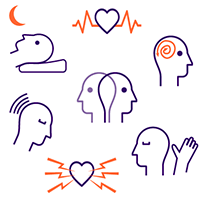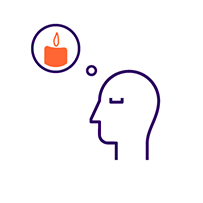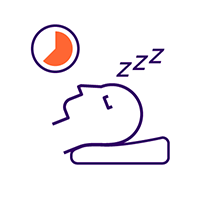For some people with anxiety disorders, prescription medicine may be a recommended treatment. Medicines can be taken instead of a psychological treatment or they can be used together.
Several prescription medicines are available to treat anxiety disorders. The preferred medicine is a type of antidepressant called a selective serotonin reuptake inhibitor (SSRI). It’s thought that SSRIs work by changing the amount of a chemical in your brain called serotonin. Serotonin is thought to affect mood. SSRIs are very effective in treating anxiety and are well tolerated by most people.
SSRIs are not addictive. They need to be taken daily and long term for at least 6–12 months. If antidepressants are stopped too early, anxiety symptoms may come back. SSRIs may not work straight away. It could take 4–6 weeks to start feeling better with an SSRI, although most people will start to feel better within 2–4 weeks.
You’ll usually start an SSRI at a low dose that is then gradually increased as your body gets used to the medicine. It’s not uncommon for anxiety symptoms to get worse before they get better.
You will need regular appointments with your GP to discuss how you’re getting on. It’s important to tell your GP if you experience side effects, but most side effects should improve over time. Common side effects of SSRIs include:
- feeling agitated, or anxious
- feeling or being sick
- diarrhoea
- headache
- problems sleeping, or drowsiness
- sexual problems.
It’s important to continue taking your medicine until you and your GP decide that it is appropriate to stop. When this happens, your dose should be reduced slowly to reduce any side effects that may occur when stopping the medicine.
No two people are alike, so if the SSRI that you have been prescribed doesn’t work you may be prescribed a different SSRI or another antidepressant such as a serotonin and noradrenaline reuptake inhibitor (SNRI).
Read more about antidepressant medicines
Other medicines that can impact on mood and brain function are sometimes considered appropriate to treat anxiety disorders. These include benzodiazepines, for example diazepam. Benzodiazepines are highly addictive, so their use is not common and requires careful consideration and monitoring.









